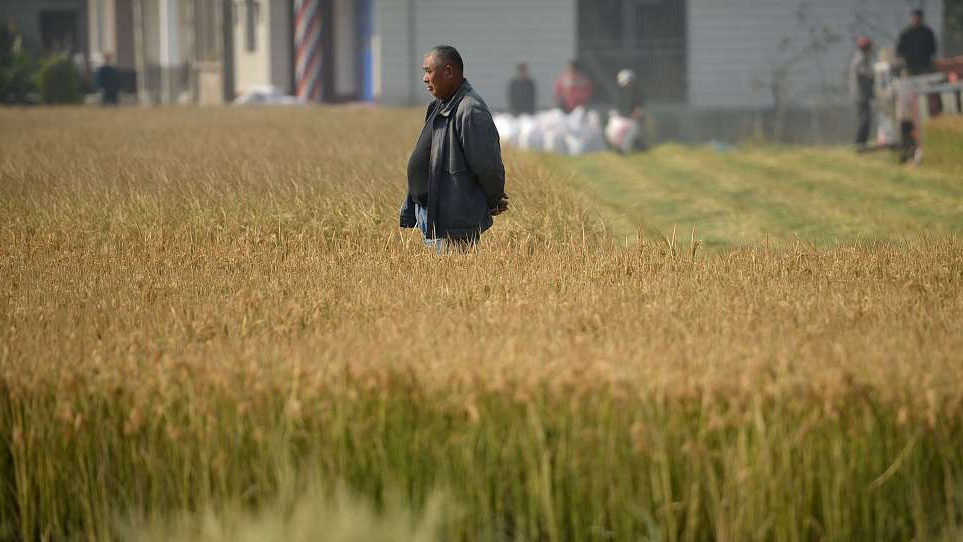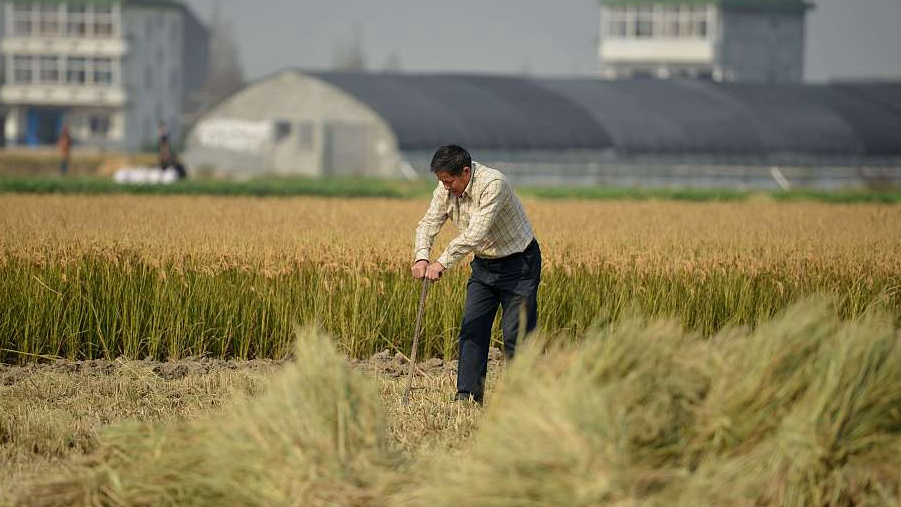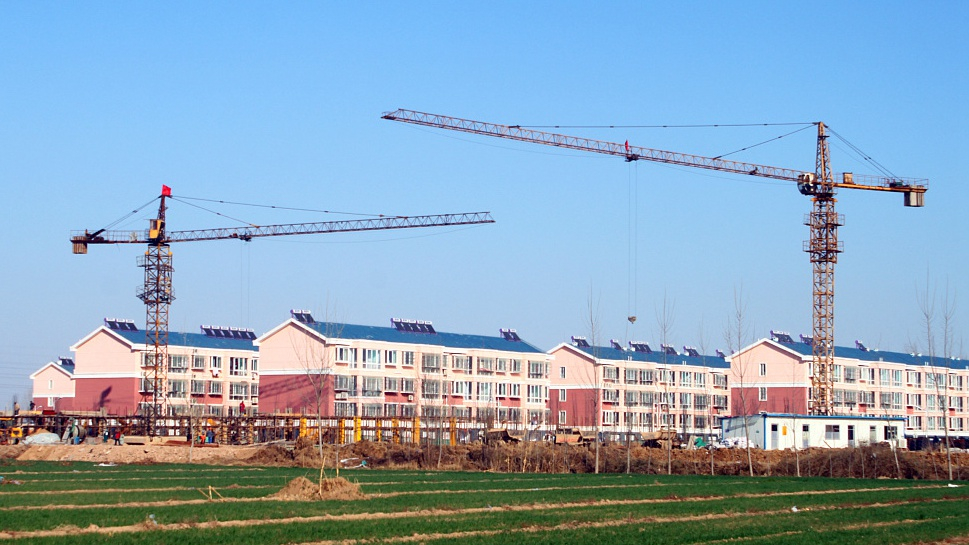
Opinion
22:40, 20-Feb-2019
China's rural land reform will go much deeper this year
Xu Jin

Editor's note: Xu Jin is an assistant dean of the China Institute for South-South Cooperation in Agriculture at China Agricultural University. The article reflects the author's opinions, and not necessarily the views of CGTN.
China released its new No.1 Document on 2019 Lantern Festival.
It is the 16th consecutive year since 2004 that the country's annual guiding central document has been focusing on the development of agriculture, rural community and farmers.
Though a little bit late this year, the 2019 No.1 Document is by no ways less important than its predecessors.
As China's past four-decade-long reform has indicated, rural reform, one among the eight tasks specified in the Document, will provide a fundamental impetus for rural and agricultural development and further enhance farmers' living standards.
The Document elaborated on deepening rural reforms in its basic management system, land system, collective property rights and agriculture supporting system.
Yet among the four aspects, rural land reform continues its top position on the reform agenda, given its essential role in both stabilizing the rural community and boosting the rural economy.
Unlike many other countries, China's rural land is collectively owned and has been contracted to rural households since the start of its reform and opening-up era.
However, the security of rural land contract rights does not necessarily yield good cash flow for farmers.
Therefore, piloting market-oriented reforms in further separating rural land rights were introduced five years ago.
One milestone for this process is the revised Rural Land Contract Law that took effect on the first day of 2019.
The revision aims to promote social equality and the stability of land rights which is vitally important.
But, it would require a fairly long period of time.
This is largely due to a huge size of farmers who depend on land – a production material essential for their livelihood sustainability – given risks entailed by China's ongoing urbanization and industrialization.

The endorsement on market secure and financing was initiated in this year's No.1 Document to guarantee the management right of the land for the farmers. /VCG Photo
The endorsement on market secure and financing was initiated in this year's No.1 Document to guarantee the management right of the land for the farmers. /VCG Photo
A new "management right" is added into the law on the basis of ownership right and contract right, thus constituting three-layer land rights for farmers.
It will give a stimulus to rural land transfer at least in two ways.
First, the newly introduced management right entitles transferees certain rights which will, in turn, ensure a smooth transfer process.
Second, the legalization of lease, transfer, equitization and mortgage of management right enriches its nature as a property right.
In particular, the management right could be used as an investment in exchange of shares, which turns out to be a creative solution that addresses the long-term deficiency of land contract rights in marketization reforms.
By endowing farmers with a more comprehensive structure of land rights, income from land assets will be greatly increased.

Homesteads in rural areas. /VCG photo
Homesteads in rural areas. /VCG photo
On top of it, the new law also stipulates that farmers' land contract rights will never be lost whether their choice is to lease their land to others, to use it as collateral for bank loans, to invest it for returns in shares, or to move their entire family to cities.
This new achievement serves as a ballast for the stability of rural land contract rights, even amidst a process of enhanced property nature of it.
The principles of the law are also reflected in the 2019 No. 1 Document.
On one hand, China vows to guarantee farmers' basic land rights, and on the other, it strives to improve the efficiency of land, including both farmland and homestead, thus boosting Chinese farmers' sense of security and sense of gain, and giving a push to its rural vitalization.
As stated by the Document, "laws, regulations and policy measures need to be improved in order to implement the rural collective land ownership, to stabilize farmers' land contract right and to liberalize the land management right," so many bold and creative steps in rural land reforms can be expected. Yet luckily the Document has charted the way for it.
(If you want to contribute and have specific expertise, please contact us at opinions@cgtn.com.)

SITEMAP
Copyright © 2018 CGTN. Beijing ICP prepared NO.16065310-3
Copyright © 2018 CGTN. Beijing ICP prepared NO.16065310-3